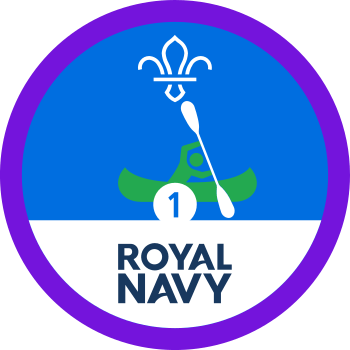
Rowing and sculling
What to expect
Modern sliding-seat rowing craft are powered by up to eight rowers with two oars each. If using one oar each, it’s called sculling. Rowers and scullers sit in single file on a sliding seat and all row at the same time. Some types of rowing craft have a coxswain who steers the boat, keeps the rowers in time and motivates them.
Rowing can be quite strenuous and is a great way to get active and work with other people, as timing and teamwork are very important to glide through the water.
What you’ll learn
Teamwork is vital in a rowing race, as each rower has to perform each stroke in tandem. If you need an activity to help you work closer as a team to achieve a goal, this is it!
If you prefer solo activities, rowing is still a great workout to take away. Many people use rowing machines in gyms, because it’s such a useful form of exercise. Get your technique right and you’ll have a great new activity for your workout.
Fun facts
Rowing has been around since at least Egyptian times and has had a sporting element from the beginning.
Handy hints
- Try a triathlon. Rowing and sculling are great exercise but can be exhausting. Try doing some rowing alongside other activities or adventures to break up the day.
- Practice makes perfect. Rowing boats can be difficult to balance or climb back into if you capsize. Try another water adventure first, like kayaking or canoeing, to practise your balance and capsize drills.
Safety
You must always:
- Complete a risk assessment
- Have the right ratios of number of adults to provide suitable supervision
- Set up an InTouch process
- Know what to do in an emergency
- Share information with parents and carers with an activity information form
- Get approval from your commissioner
Be safe outdoors:
- Check the weather forecast
Be safe in water:
Everyone should be able to swim 50 m wearing the clothing or equipment for the activity. Non-swimmers will need additional support.
Water can be dangerous - be aware of the risks.
The category of water depends on how safe the water is. Use our waterways directory to check.
Be sure to manage the group when near water, keeping everyone safe.
Make sure that all equipment is fit for purpose and in good condition:
Everyone must wear a life jacket or buoyancy aid.
The instructor must make sure boats are seaworthy.
There are regulations you must follow if you are hiring a boat.
Joint activities with other organisations:
- This activity can be run jointly with Girlguiding.
- This activity can be run with other organisations.
This activity can be led by you or someone else in Scouts:
The activity leader must have an adventurous activities permit with the right level and permissions for your group.
You don't need a permit for activities on Class C waters (safe, inland water less than 100 m wide).
Where the group is entirely members over the age of 18 the permit scheme does not apply, please follow the rule 9.8 adult groups.
You can go to a centre or use an activity leader who is not part of Scouting:
You must find a suitable provider who meets the following requirements:- The centre/instructor should hold one of these: (If the provider is AALA exempt)
- British Rowing - Level 2 Coach (sliding seat)
The provider must have public liability insurance.
Guidance
Reflection
Being active can help improve our fitness and stamina, but also our mental health and wellbeing. While some people might enjoy spending time in the gym or heading out for a run, finding an activity or adventure you can enjoy with others that keeps you active can offer some great benefits. What are some other benefits of keeping active through a sport or activity? These could be keeping up your motivation, spending time with other people or just the fact that it can be more enjoyable.
No matter what the reason, it’s great to find something you enjoy that keeps you healthy and active. Try sharing ways you keep active with the group and see if you find anything in common with someone else, or hear any ideas you might want to try.
- Rowing and sculling can often be adapted so more people can give it a go. Many outdoor centres have facilities that cater for people with additional needs and experienced instructors to help everyone achieve their goals. Get in touch with your local provider to chat through the needs of people in your group – make sure you give them plenty of notice.
- Rowing boats can be adapted in a range of different ways to make sure everyone has the opportunity to get involved. More information about adaptive rowing can be found on British Rowing. As installations to craft may need to be made, fitted and tested, get in touch early with your provider to discuss any additional needs and make sure they can provide a session that works for you and your group.
All Scout activities should be inclusive and accessible.
Anyone who enjoyed rowing may want to try other adventures such as rope-pulling, canoeing or kayaking.

